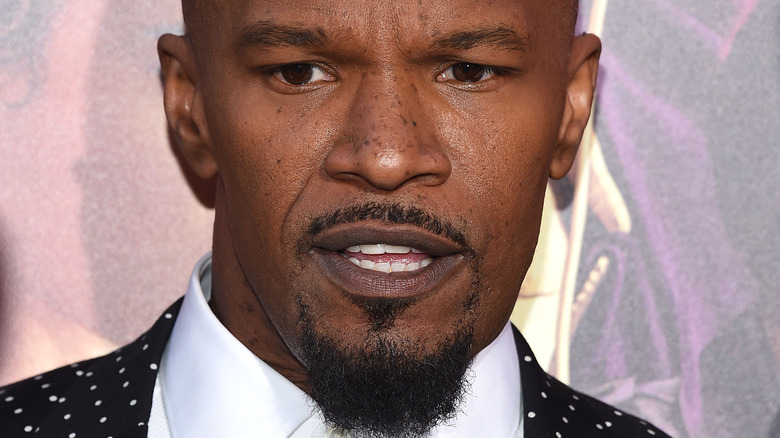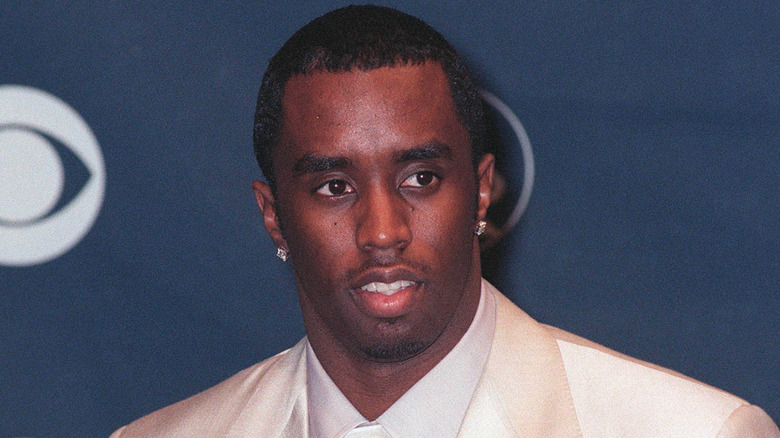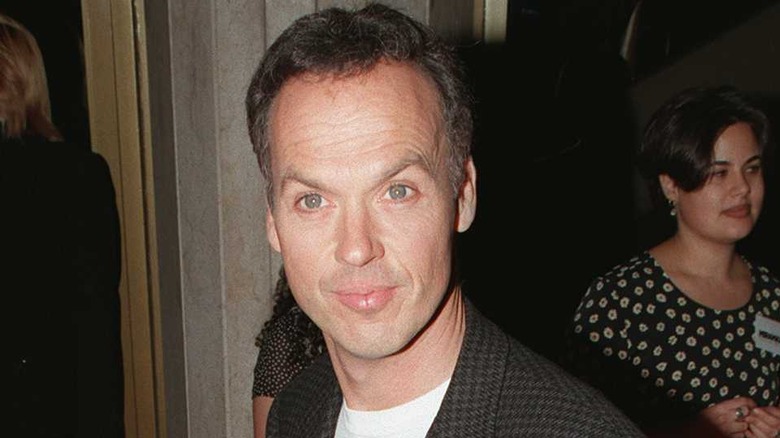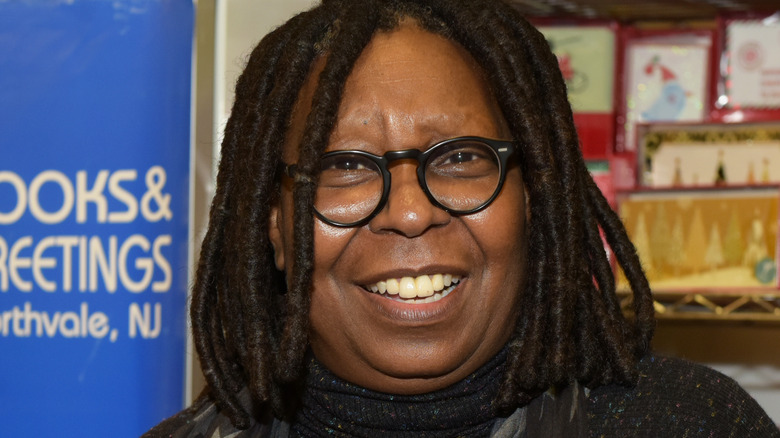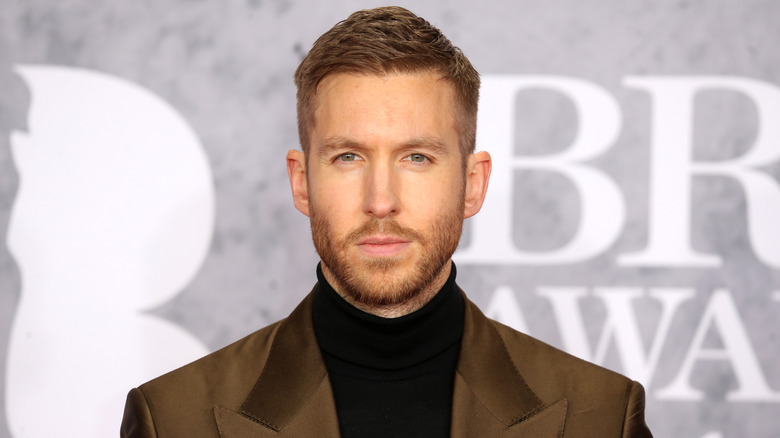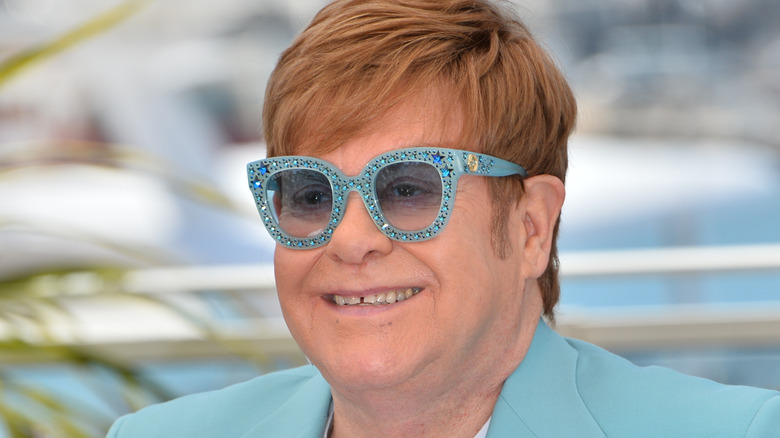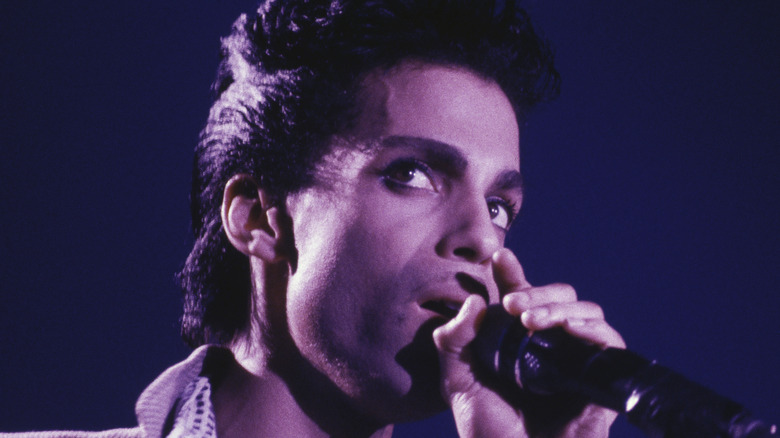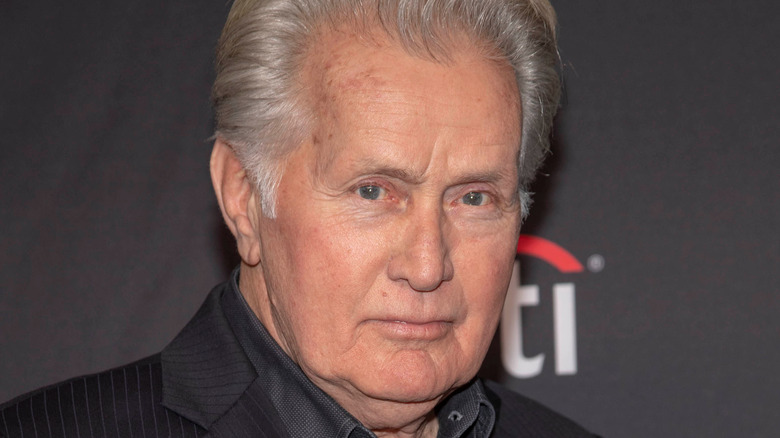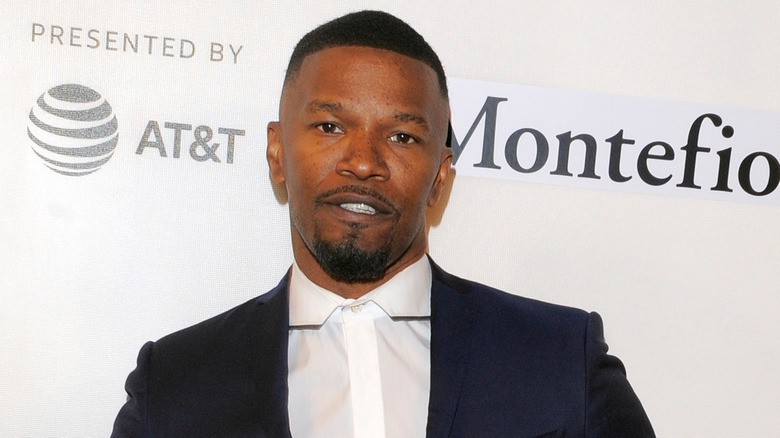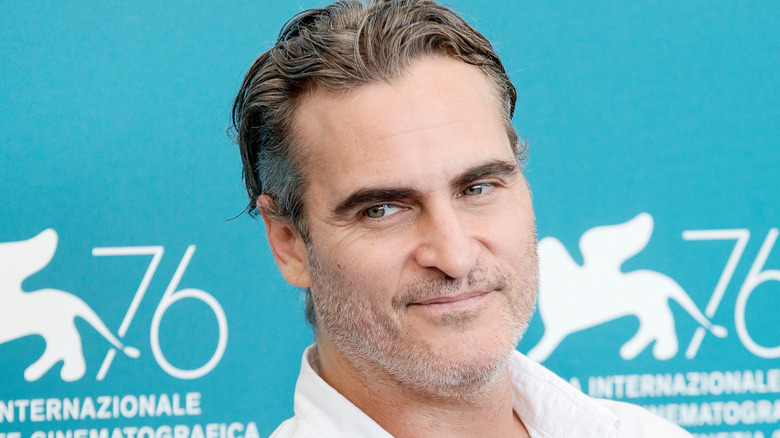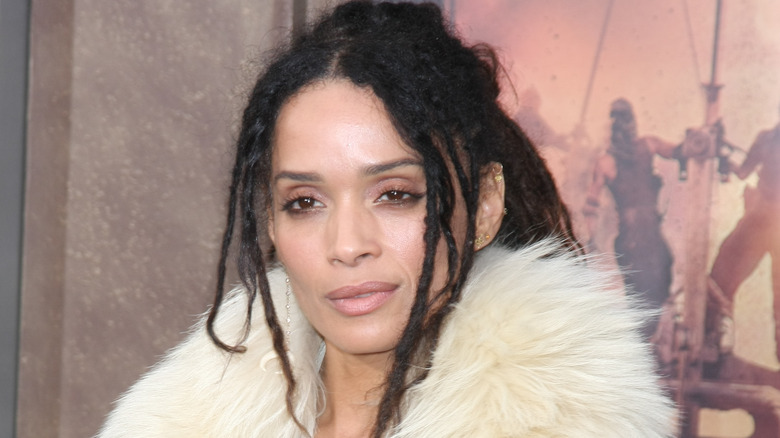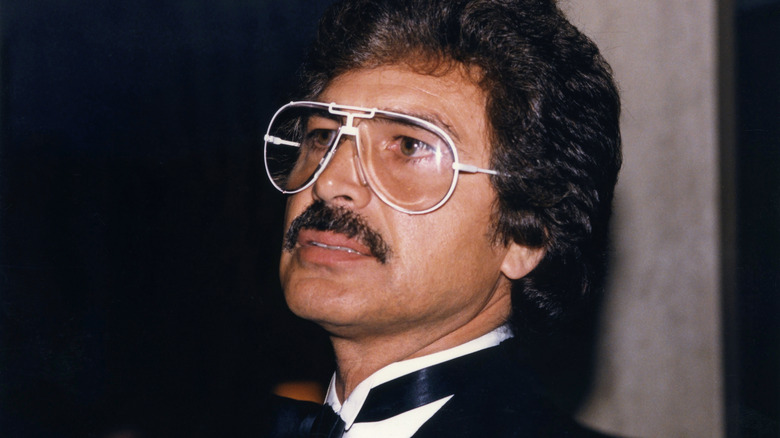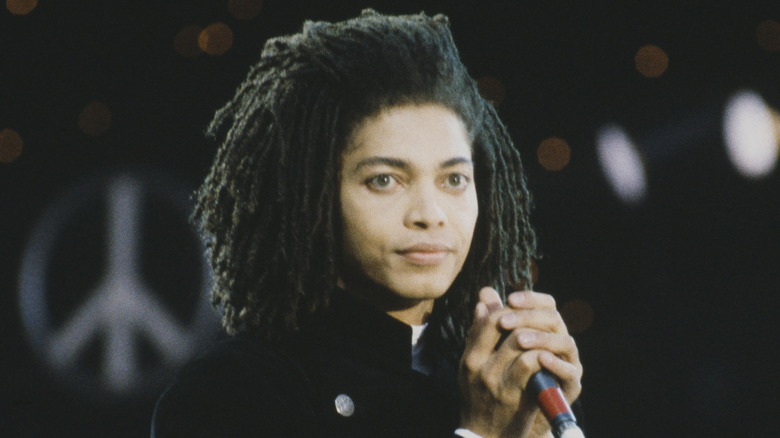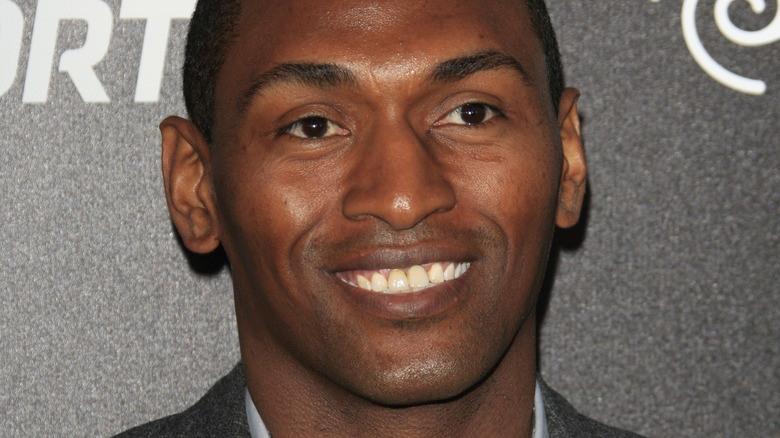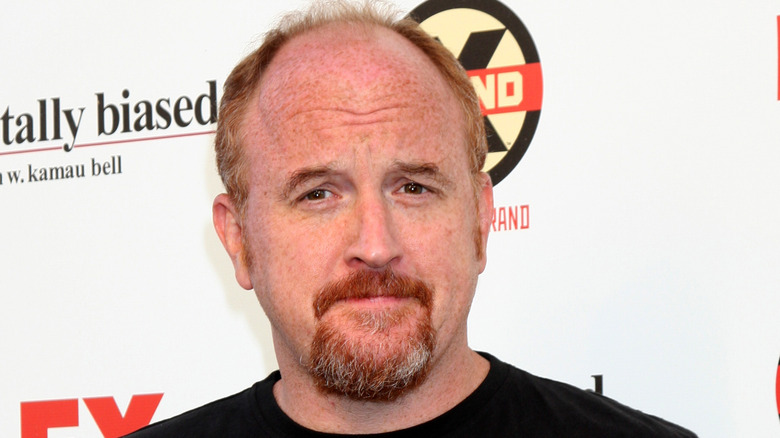The Strangest Celebrity Name Changes
A name means a lot. It's our whole identity wrapped up in two or three words, connoting our cultural heritage, family history, and even gender identity all in one quick mouthful of syllables. For a celebrity, be they an actor, musician, comedian, or other performer of some type, a name is also a brand, synonymous not just with a person, but also with a persona, instantly registering certain feelings in the minds of millions.
For all those reasons and more, a lot of people don't go through life with the name they were given by their parents at birth, or the one a nurse wrote down on their birth certificate. They may need to alter it, or select a new one entirely, to reflect a major identity breakthrough or note a significant life change. Profound spiritual awakenings and cold, hard professional reasons alike may also inspire a public figure to choose to go by something other than the name their mama gave them. Here are some celebrities who chose their own names, and the fascinating reasons that inspired their adoption.
A name change to Love
Sean Combs is credited as a producer on the landmark 1994 Notorious B.I.G. album "Ready to Die" as Sean "Puffy" Combs, the middle name a childhood affectation. "Whenever I got mad as a kid, I used to always huff and puff," he told Jet, adding, "That's why my friend started calling me Puffy." When he became a rapper, he altered and added to "Puffy" and became Puff Daddy, according to Complex.
Puff Daddy was one of the most prolific hitmakers of the late '90s, but after an acquittal on charges related to a 1999 nightclub shooting, according to MTV News, he felt he needed a new start. "No more Puff Daddy," he said. "I'm rockin' with P. Diddy now," he added. Four years later, the "P." had to go. "I felt the 'P' was coming between me and my fans," he told "Today" (via USA Today). "We had to simplify it." In 2006, Diddy readopted the "P. Diddy" moniker for legal reasons, after British producer Richard "Diddy" Dearlove filed suit, but by 2008 he'd moved on to Sean John, his birth first and middle name and also the name of his clothing line. In 2011, Sean John called himself SWAG for one week, briefly went by Puff Daddy again in 2014, and changed it once more to LOVE (or Brother Love) in 2017. Then in 2021, and billing himself as Diddy, the musician revealed on Instagram that he legally changed his middle name to "Love."
Yes, this is a story about Michael Douglas
With and endless stream of memorable work, including constantly rerun movies "Mr. Mom," "Night Shift," and "Gung Ho," Michael Keaton dominated mainstream comedy cinema in the 1980s, but then became a superstar when he teamed up with Tim Burton to play the titular roles in two classics: "Beetlejuice" and "Batman." A contemporary and peer of Keaton's in the 1980s and early 1990s: Michael Douglas, son of Hollywood legend Kirk Douglas and the top-billed star of several era-definitive dramas, including "Fatal Attraction" and "Wall Street."
What else do Keaton and Douglas have in common, besides Reagan-era stardom? They have the same name. "My real name is Douglas, Michael Douglas," the so-called Michael Keaton said on "The Late Show with Stephen Colbert" in 2017. By the time he started to book acting gigs in Hollywood, that other Michael Douglas had started working, too, and had registered the name in actors unions, which don't allow for duplicates. So, he had to pick a new name and went with Keaton after putting very little effort into making the choice. "I was in the K's in the alphabet and I thought, 'It's close enough.'"
Keaton also shared that, amazingly, he nearly chose the name "Michael Jackson" for a stage name as an homage to the family's nickname for his given middle name, John. That could have been... bad.
How did Whoopi Goldberg get her name? The answer is in the wind
Whoopi Goldberg is one of America's most beloved entertainers. She's versatile, too. After her one-woman show became a hit on both Broadway and HBO in the 1980s, Goldberg became a movie star, headlining dramas including "The Color Purple," comedies including "Sister Act," and the supernatural romance "Ghost," which won the performer an Oscar. That represents the "O" in "EGOT" — Goldberg has attained the elusive quadruple crown of American entertainment, also winning an Emmy, Grammy, and Tony Awards. Today, Goldberg spends most of her professional time as a panelist on "The View."
Perhaps she endeared herself to millions because of her name, which is not the one with which she came into the world. According to The New York Times, the actor's birth name is Caryn Johnson. The first part of her stage name is essentially a fart joke hiding in plain sight. "When you're performing on stage, you never really have time to go into the bathroom and close the door. So if you get a little gassy, you've got to let it go," she explained. "So people used to say to me, 'You are like a whoopee cushion.' And what's where the name came from."
As for "Goldberg," the star told The Baltimore Sun in 1997, "The true story is that my family is Jewish, Buddhist, Baptist and Catholic — none of which I subscribe to, by the way, as I don't believe in man-made religions — so I took the last name for a Jewish ancestor."
Calvin Harris started life as Adam
Most of the superstar DJs who have come to dominate the electronic music scene, the mass party circuit, and pop radio over the last decade all rose to fame with a cool, edgy, or mysterious stage name. Some laptop-wielding musicians of this ilk include Deadmau5, Bassnectar, Skrillex, Diplo, Avicii, and Tiesto. Arguably the most successful of them all: Calvin Harris, who provided musical accompaniments for big hits by Rihanna ("We Found Love") and Dua Lipa ("One Kiss"), among many others. He did it with a fairly ordinary, nondescript name, which one might also assume is the DJ's real name — and yet it isn't.
In 2009, he told Shortlist (via Digital Spy) that he abandoned his real name of Adam Wiles in favor of Calvin Harris. "My first single was more of a soul track, and I thought Calvin Harris sounded a bit more racially ambiguous," the white, Scottish musician explained, verging on the problematic. "I thought people might not know if I was Black or not. After that, I was stuck with it."
Or maybe he wasn't. In 2020, he unveiled his new moniker to BBC Radio 1: Love Regenerator. "I started feeling almost negative connotations with that name," he said, meaning Calvin Harris. "It's not my name. My name's Adam. ... So, [I thought] let's marshal in, let's shepherd in just a new little thing ... but not fully, like, start wearing a mask, change my name completely, like, do all the rest of that."
It was a Herculean task for Elton John to swipe his name from colleagues
As the co-writer, singer, and pianist behind eternal jams including "Rocket Man," "Your Song," "Saturday Night's Alright for Fighting," and "Crocodile Rock," Elton John is one of the most dynamic performers the world has ever seen, as well as the most successful — he's sold 79 million albums in the United States alone, per the RIAA. But it's hard to imagine him achieving all that if he'd kept the respectable but not at all rock star-esque name his parents gave him when he was born in England in 1947.
As a young man, the former Reginald Kenneth Dwight joined a small rock band. "I wanted to become a singer in my own right, and I wanted to choose a name," he told Rowan Atkinson in a 1991 interview. "And the saxophone player in the band was called Elton, so I chose that name." That guy was Elton Dean, who went on to become a highly regarded jazz musician, according to The Guardian. Both were bandmates in Bluesology with singer and guitarist Long John Baldry — which is where Elton John got the second part of his name.
And according to the London Gazette, the performer gave himself a new middle name, too. In 1972, he legally got rid of "Reginald Kenneth Dwight" in favor of "Elton Hercules John."
His name is Prince and he was funky, even when he wasn't named Prince
When he emerged in the late 1970s, Prince already had a name befitting or foretelling musical superstardom. His real name is Prince Rogers Nelson, and as one of the most innovative, versatile, prolific, and worshipped entertainers, he more than earned a royal title, generating classics including "1999," "Little Red Corvette," "Purple Rain," "Raspberry Beret," "Kiss," and "U Got the Look." Amazingly, his longtime label, Warner Brothers Records, grew concerned that Prince actually made too much music. According to Far Out, in 1993 Warner executives attempted to slow Prince's rigorous, album-a-year release schedule, fearing he'd self-cannibalize sales. This offended Prince — he took to performing with the word "SLAVE" scrawled on his face, strongly implying his feelings toward his label at the time. Then he took his feud with the label one step further.
"Prince is the name my mother gave me at birth," the musician said in a statement. "Warner Brothers took the name, trademarked it, and used it as the main marketing tool to promote all of the music I wrote." To separate himself, both as a person and as an artist, from that notion, he changed his name to an unpronounceable symbol, a combination of the traditional signs that represent "male" and "female." For a few years, and until the feud died down, the media and fans simply referred to the artist as "The Artist" or "The Artist Formerly Known as Prince."
Martin Sheen renamed himself after a TV bishop
Martin Sheen enjoyed a reputation as a classy actor of significant stature even before he portrayed the most conscientious fictional president in history on "The West Wing." In the 1970s and '80s, Sheen starred in major films including "Badlands," "Apocalypse Now," and "Wall Street." Sheen is also a devout adherent of the Roman Catholic Church. After his faith "lapsed" as he told The Morning Call in 1987, Sheen rediscovered his spiritual side and poured himself into charitable causes, including nuclear disarmament and helping the unhoused community. Sometimes, his faith and career coincide, as exemplified with his religiously oriented films "Catholics," "Conflict," "Gospa," and "The Way."
The actor's spiritual rebirth also guided the selection of his stage name. Sheen's father was Spanish, and his parents named him Ramon Estevez. When he started to pursue a career as an actor in New York in the 1950s, he found that a Spanish-sounding name prevented him from landing roles. "My look, they were tell me was Irish," Sheen said of casting directors to the Hudson Union Society. He agreed to experiment using a name that sounded somewhat Irish, then, taking the Martin from Robert Dale Martin, a casting director at CBS "who was encouraging," and the Sheen from Bishop Fulton J. Sheen, a 1950s televangelist.
Two of Sheen's sons became big stars in their own right: Charlie Sheen and Emilio Estevez. The former, born Carlos Estevez, adopted his father's stage name, while the latter did not.
Jamie Foxx outfoxed comedy bookers
Jamie Foxx can and does do it all. After a star turn as a repertory player on the sketch comedy show "In Living Color," Foxx went on to star on an eponymous long-running sitcom, won an Oscar for his deep and uncanny portrayal of Ray Charles in "Ray," hosts the game show "Beat Shazam," and maintains a successful side career as an R&B recording artist. It all started for Foxx when he was in his early twenties and decided that stand-up comedy was his passion and path — back when his name was Eric Marlon Bishop.
Asked by host Stephen Colbert on "The Late Show" about the origin of the moniker, the man formerly known as Eric explained that after his initial breakout success at in stand-up comedy open mic nights, he found himself getting iced out by the jealous male comics who "ran the list." That meant that when they saw his name, they would skip over him and deny him stage time, because they couldn't handle the competition. So, Eric got creative and started writing down feminine-sounding names, including Tracy Brown, Stacy Green, and Jaime Foxx, in the hopes that his envious (and possibly amorous) male compatriots take the bait. The plan worked, and after Foxx's first set under the new name, he claims he "got a standing ovation." The name took off, as did Foxx's career, and the rest is history.
Joaquin Phoenix started at the Bottom
Joaquin Phoenix is one of Hollywood's most brooding, idiosyncratic, and serious actors, with a career highlight in the Academy Award he won for his work as the comic book villain the Joker, reimagined as a deeply troubled stand-up comedian in "Joker." According to The Sun, the actor was born with the name Joaquin Bottom, to hippie parents John and Arlyn Bottom (per The Guardian).
In 1977, the Bottoms left the religious organization Children of God after leader David Berg mandated "flirty fishing," or the use of sex to lure in new members, according to Vanity Fair. The family soon thereafter adopted a new last name, Phoenix, suggesting rebirth and new starts, and headed to Hollywood in 1979. During childhood, Joaquin Phoenix decided to change his name with a little inspiration from watching his dad do some yard work, and his mother (who'd switched from Arlyn to Heart) gave the okay, and from then on, his name was Leaf Phoenix, a name under which he'd appear on several TV shows in the 1980s. Around 1990, Leaf's brother, acclaimed young actor River Phoenix, suggested that Leaf change his name back to Joaquin. He did, and thus the name "Joaquin Phoenix" was finally and fully formed.
Lisa Bonet hasn't been Lisa Bonet for some time
The late 1980s and early 1990s were a metaphorical whirlwind of a time for Lisa Bonet, both personally and professionally. In 1984, she landed her breakout role as cool bohemian New York City teen Denise Huxtable on the ultra-popular "The Cosby Show." Both the actor and character proved so popular with young fans that "The Cosby Show" led to the 1987 spinoff, "A Different World," which centered on Denise attending the fictional Hillman College, a historically Black college and the alma mater of her parents. Around that time, according to People, Bonet started to forge an identity outside of the squeaky-clean Huxtable-verse, appearing in the sexually provocative film "Angel Heart," wearing very little clothes in features for "Interview" and "Rolling Stone," marrying a pre-fame Lenny Kravitz, and giving birth to a daughter (future star Zoe Kravitz). Bonet departed "A Different World" after one season, returned to "The Cosby Show," and was subsequently "fired for 'creative differences,'" according to People.
In 1993, Bonet sought to carefully and consciously delineate her work life from the rest of her life. While she still acts on occasion, she does so under the name Lisa Bonet, but for going on 30 years now, she's been known to friends and family as Lilakoi Moon. She picked the name in order "to honor [her] personal life outside of this," she said, meaning show business.
Why choose a short name, when Englebert Humperdinck will do?
Like Tom Jones and Wayne Newton, Engelbert Humperdinck occupies a unique sub-genre of popular music. These male singers utilize rock n' roll-era vibes, fashions, and macho swagger but sing tender, romantic songs in the style of old-fashioned crooners like Dean Martin or Frank Sinatra. Through a rapidly changing musical landscape of the last 50 years, these performers can still draw a big crowd in places like Las Vegas or Atlantic City.
Humperdinck is certainly the most colorfully-named singer of the bunch, and it's a stage name he took from another musician — the original Engelbert Humperdinck was a composer of popular operas in Germany in the late 19th and early 20th centuries. The smoldering crooner of adult contemporary standards, including "Release Me (And Let Me Love Again)," was born Arnold George Dorsey in 1936, according to the BBC, and put out his first single in 1958 as Gerry Dorsey. A few years later, the singer aligned with manager Gordon Mills, who after discovering a singer named Tom Woodward and made him into a star named Tom Jones, took the same approach and rebranded himself as Englebert Humperdinck.
The former Terence Trent D'arby signs a new name now
In 1988, 26-year-old singer-songwriter Terence Trent D'Arby made a big splash. His unique second single, "Wishing Well," an uptempo tune with synth-pop, soul, and rock flourishes, hit #1 on the "Billboard" Hot 100, and the follow-up, the romantic ballad "Sign Your Name" made it to #4. D'arby's first album, Introducing the Hardline According to Terence Trent D'arby won a Grammy for Best R&B Vocal Performance, Male, and D'arby earned a Best New Artist nomination, too. D'arby landed a few more minor hits into the mid-1990s, and he's released a bunch of albums and appeared in a few movies and TV shows, too, but for the most part, the name "Terence Trent D'arby" doesn't make headlines too much in the 21st century. That's, in part, because the musician doesn't go by that name (or use his original last name of Howard) anymore. In 2001, according to "Classic Pop," he adopted the name Sananda Maitreya.
"I had no choice," Maitreya told The Guardian of the switch. "When you have a psyche that's no longer functional, you petition another psyche." The musician went on to say he "was always Sananda Maitreya," and that he lived and worked under the Terence Trent D'arby persona "until they pulled the plug on him."
Ron Artest created World Peace
At one point, Ron Artest was known solely for being a really good basketball player. He was an all-league selection and the defensive player of the year in 2004, the same season he made the All-Star team. All of that was overshadowed by the events of November 19, 2004. According to USA Today, after Artest scuffled on the court with the Detroit Pistons' Ben Wallace, a fan threw a drink at Artest, who then went into the stands after the guy, resulting in a violent, bench-clearing brawl. Nine players earned suspensions, but Artest got the most punishment, ordered by the NBA to sit out 73 games.
After that, Artest spent "many years of research and soul-searching," according to his publicist Courtney Barnes in a statement to the Los Angeles Times. His aim: To discover a "name that was both personally meaningful and inspirational." In 2011, Ron Artest officially changed his name to Metta World Peace, an act "meant to inspire and bring youth together all around the world," he said. "Metta" is a word used in Buddhism that connotes goodness, friendliness, and kindness, although the athlete didn't have many nice things to say about himself. "I changed my name because I got tired of Ron Artest, he's a [redacted]," he told the Los Angeles Times.
Metta World Peace further amended his name in 2020, readopting his old last name and adding in the surname of his wife, Maya Sandiford. He's now Metta Sandiford-Artest.
How Louis C.K. got around a tough-to-say last name
With the notable exception of performers like Larry the Cable Guy and Cedric the Entertainer, stand-up comedians generally don't use flashy stage names or take on a new name for their zinger-slinging persona. Perhaps it's because comedy can veer toward the intimate and professional, leaving comics to be as authentic as possible in their presentation. One of the more successful comedians and comedy content creators bucked that notion, however. Prior to Louis C.K.'s fall from grace following his guilty admission to sexual misconduct allegations, he was once one of the most lauded stand-ups around, churning out acclaimed specials, including "Shameless" and "Hilarious," while also writing, directing, and starring in the FX dramedy series "Louie."
Those initials at the end of his name must stand for something, right? Actually, they don't. The comedian's real last name is Székely, according to Savannah Now, which also explained that it comes from his father's Hungarian roots. Naturally, the name Székely proved to be problematic for most people to say, so the comedian started using "C.K.," which sounds close to the phonetic pronunciation of the name.

